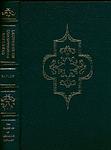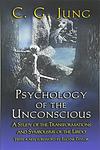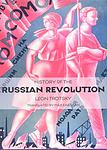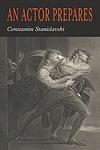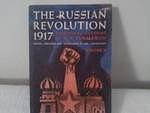The Greatest Russian, Swiss "Nonfiction" Books Since 1900
Click to learn how this list is calculated.
This list represents a comprehensive and trusted collection of the greatest books. Developed through a specialized algorithm, it brings together 290 'best of' book lists to form a definitive guide to the world's most acclaimed books. For those interested in how these books are chosen, additional details can be found on the rankings page.
Genres
Countries
Date Range
Reading Statistics
Click the button below to see how many of these books you've read!
Download
If you're interested in downloading this list as a CSV file for use in a spreadsheet application, you can easily do so by clicking the button below. Please note that to ensure a manageable file size and faster download, the CSV will include details for only the first 500 books.
Download-
1. The Gulag Archipelago by Aleksandr Solzhenitsyn
"The Gulag Archipelago" is a comprehensive and stark account of the Soviet Union's forced labor camp system. The narrative, based on the author's own experiences as a prisoner and on extensive research, documents the history, operation, and life inside the Gulag system. It also provides a critical examination of the regime's legal system, police operations, and political leadership. The book is an intense indictment of the Soviet Union's totalitarian regime, revealing its brutality, inhumanity, and vast scale of its prison camp network.
-
2. Memories, Dreams, Reflections by Carl Jung
This book is an autobiography of a renowned psychologist who shares his life experiences, insights, and the development of his theories. The narrative delves into his childhood, his career, his relationship with Sigmund Freud, and his exploration into the human psyche. It also provides an in-depth look at the author's dreams and visions, which greatly influenced his work, and his thoughts on subjects such as life after death, reincarnation, and the collective unconscious.
-
3. On Death and Dying by Elisabeth Kübler-Ross
This groundbreaking book explores the five stages of grief experienced by terminally ill patients. The author, a Swiss-American psychiatrist, introduces the concept of the five stages: denial, anger, bargaining, depression, and acceptance, which has since been universally recognized and applied in various fields. The book is based on the author's series of interviews with dying patients, providing an empathetic and insightful look into the emotional and psychological experiences of those facing death.
-
4. My Childhood by Maxim Gorky
"My Childhood" is a poignant and powerful autobiographical account of a young boy's life in 19th-century Russia. The narrative explores the harsh realities of growing up in a dysfunctional family, with a cruel stepfather and an uncaring mother, against the backdrop of poverty and social unrest. The protagonist's struggles, resilience, and observations provide a vivid portrayal of the societal conditions of the time, while also illuminating the human capacity for hope and perseverance in the face of adversity.
-
5. Love in the Western World by Denis de Rougemont
The book is an in-depth exploration of the concept of love as it has evolved in Western society, tracing its development from the myth of Tristan and Iseult to modern times. The author argues that the idea of passionate, romantic love that is prevalent in the West is fundamentally a form of destructive passion, often leading to pain and tragedy. The book also delves into the socio-cultural aspects of love, examining how societal norms and expectations shape our understanding and experience of love.
-
6. Mars by Fritz Zorn
"Mars" is a poignant autobiographical account of a young man's life and his battle with terminal cancer. The narrative delves into the author's affluent yet emotionally barren upbringing in a Swiss suburb, which he refers to as "Mars," symbolizing its cold and alienating environment. The book is a critique of his repressive bourgeois society, which he believes contributed to his psychological and physical illness. Through introspective and often angry prose, the author explores themes of alienation, the search for identity, and the impact of societal norms on individual well-being. His struggle is not only against the disease but also against the cultural and familial constraints that stifled his emotional development.
-
7. Grid Systems In Graphic Design by Josef Müller-Brockmann
This book is a seminal guide to graphic design and typographic composition, focusing on the use of grid systems as a foundational tool for ensuring visual coherence and hierarchy across various design projects. It provides designers with a methodical approach to organizing text and images in a clean, logical, and aesthetically pleasing manner. Through systematic arrangement, the grid serves as an essential framework that can be applied to a wide range of design work, from print media to digital interfaces. The book delves into the principles, applications, and benefits of grid systems, offering practical advice, examples, and clear illustrations to help designers harness the power of grids to create effective, impactful visual communications.
-
8. Memoirs Of A Revolutionist by Vera Figner
"Memoirs of a Revolutionist" is a captivating autobiography that chronicles the life of a remarkable woman, detailing her journey from a privileged upbringing to becoming a prominent figure in the Russian revolutionary movement. Through her personal experiences and reflections, the author provides a vivid account of the political and social upheaval in 19th-century Russia, shedding light on the struggles, sacrifices, and triumphs of those dedicated to the cause of revolution. This thought-provoking memoir offers valuable insights into the complexities of revolution and the indomitable spirit of those who fight for change.
-
9. Notes From The Blockade by Lydia Ginzburg
"Notes From The Blockade" is a poignant memoir that provides a firsthand account of life during the Siege of Leningrad in World War II. The author, Lydia Ginzburg, vividly describes the hardships, hunger, and constant fear experienced by the city's residents, while also exploring the resilience and strength of the human spirit. Through her powerful narrative, Ginzburg offers a deeply personal and moving portrayal of survival amidst unimaginable circumstances.
-
10. Fallen Leaves by Vasily Rozanov
"Fallen Leaves" is a collection of philosophical and autobiographical essays that delve into the author's musings on a wide range of topics, including religion, sexuality, and society. The work reflects the author's critical examination of modernity and the decline of traditional values, as well as his personal sense of isolation and disillusionment with the contemporary world. Through a series of fragmented and often controversial reflections, the author grapples with the existential challenges of his time, presenting a candid and introspective exploration of the human condition at the turn of the 20th century.
-
11. My Life by Leon Trotsky
This autobiography provides a detailed account of the life of a prominent Russian revolutionary and Marxist theorist. The book traces his early life, education, and political development, his role in the Russian Revolution and Civil War, his leadership of the Red Army, and his expulsion from the Communist Party and subsequent exile. It offers a unique perspective on key events in 20th-century history and an insight into the author's complex personality and intellectual development.
-
12. Conditioned Reflexes by Ivan Pavlov
"Conditioned Reflexes" is a groundbreaking work that delves into the study of behaviorism and the concept of classical conditioning. The author, a renowned physiologist, presents his findings on how an organism's responses can be triggered or conditioned by external stimuli, using his famous experiments with dogs as a prime example. The book significantly influenced the field of psychology and laid the foundation for future studies on learning and behavior.
-
13. Psychology of the Unconscious by Carl Jung
"Psychology of the Unconscious" is a pioneering work that explores the complex landscape of the human unconscious, introducing theories that would later become central to understanding personality and human psychology. The book delves into the idea of the collective unconscious, archetypes, and the process of individuation. It further discusses the role of dreams, myths, and symbols in understanding and interpreting the unconscious mind. The author uses case studies and examples from various cultures to support his theories, offering a comprehensive view of the human psyche.
-
14. Judgement and Reasoning in the Child by Jean Piaget
This book is a seminal work in the field of child psychology, exploring the ways in which children develop their cognitive abilities and reasoning skills. The author delves into the mental processes of children, focusing on how they form judgments, understand cause and effect, and develop logical thinking. The book also discusses the stages of cognitive development, highlighting the shift from intuitive to logical thinking. This influential work has greatly contributed to our understanding of child development and education.
-
15. Creatures that Once Were Men by Maksim Gorky
"Creatures that Once Were Men" is a collection of short stories that depict the harsh realities of life in the lower classes of Russian society. The stories are set in a night refuge for the homeless, where the characters, despite their grim circumstances, strive to maintain their humanity. Through their struggles, the author explores themes of poverty, addiction, despair, and the human spirit's resilience.
-
16. The Unwomanly Face Of War by Svetlana Alexievich
"The Unwomanly Face Of War" is a powerful and poignant collection of interviews with Soviet women who fought in World War II. Through their testimonies, the author sheds light on the often overlooked and untold stories of these brave women who served as snipers, pilots, nurses, and soldiers on the front lines. The book explores their experiences, sacrifices, and the lasting impact of war on their lives, providing a unique and intimate perspective on the realities of war from a female point of view.
-
17. State And Revolution by Vladimir Il’ich Lenin
This seminal political theory text delves into the role of the state in society and the necessity of proletarian revolution to dismantle the bourgeois state apparatus. It argues that the working class must seize state power, dismantle the existing state machinery, and establish a dictatorship of the proletariat as a transitional phase towards the creation of a classless, stateless society. The work critically analyzes the ideas of Marx and Engels on the state, while also addressing the practical aspects of revolution, including the suppression of the bourgeoisie by the proletariat. It serves as a theoretical foundation for understanding the dynamics of class struggle and the path towards socialism.
-
18. Man and His Symbols by Carl Jung
This book is a comprehensive introduction to the world of depth psychology, exploring the significance of dreams, art, and symbols in everyday life. The author and his colleagues delve into the unconscious mind, discussing its influence on our thoughts, behaviors, and experiences. The book emphasizes the importance of understanding and interpreting symbols as a means to gain insights into our unconscious motivations, fears, and desires. It also discusses the role of archetypes and collective unconscious in shaping human behavior and culture.
-
19. History Of The Russian Revolution by Leon Trotsky
The book provides a detailed analysis of the Russian Revolution of 1917, written by one of its key leaders. It explores the socio-political and economic conditions that led to the fall of the Russian Empire and the eventual rise of the Soviet Union. The narrative delves into the complex interplay of various classes and political factions, the role of leadership, and the strategies employed during the revolution. The author uses his firsthand experience to offer insights into the events and their significance, presenting a critical examination of the revolution's phases, from the initial uprisings to the consolidation of Bolshevik power.
-
20. Theory Of Peasant Economy by Alexander V. Chayanov
"Theory of Peasant Economy" explores the unique economic behaviors and motivations of peasant households, which differ significantly from those of capitalist enterprises. The book argues that peasant economic decisions are primarily based on the family's labor balance rather than on maximizing profits. The author introduces the concept of the "family-labor farm," where the household's subsistence needs dictate agricultural production levels and the use of family labor. This seminal work challenges traditional economic theories by emphasizing the importance of internal family dynamics and demographic changes in understanding the economics of peasant life.
-
21. The State And Revolution by Vladimir Il’ich Lenin
"The State and Revolution" is a political treatise that theorizes about the role of the state in society and the necessary conditions for the transition to socialism. The work critically analyzes the state as a tool for class oppression, where it serves the interests of the ruling class. It discusses the inevitable decay of the state under socialism and its eventual dissolution in a communist society. The author emphasizes the necessity of a proletarian revolution to overthrow the bourgeois state, which would be replaced by a proletarian state—a dictatorship of the proletariat—serving as an instrument to suppress the resistance of the former ruling class and to manage the transition to a stateless, classless society.
-
22. Morphology Of The Folktale by Vladimir Aioakovlevich Propp
"Morphology of the Folktale" is a seminal work in the field of folklore studies that analyzes the structure of Russian folktales to identify their simplest irreducible narrative elements and their arrangement. The author introduces the concept of "functions" which are common plot devices used in folktales, and categorizes these functions into a consistent and repeatable framework. This structural approach to the study of tales reveals that despite the varied and complex surface of stories, their underlying structures follow a limited number of patterns. This methodology not only provides a tool for analyzing tales but also influences subsequent structuralist and narratological approaches in the broader field of cultural studies.
-
23. The Course In General Linguistics by Ferdinand de Saussure
"The Course in General Linguistics" is a foundational text in the field of linguistics that outlines the principles of structural linguistics and introduces key concepts such as the linguistic sign, the distinction between langue (language as a system) and parole (language as used in context), and the idea of synchronic versus diachronic analysis. The work emphasizes the arbitrary nature of the sign, which consists of the signifier (the form of the word or phrase) and the signified (the conceptual meaning). This book, compiled from notes by students from the lectures given by its author, has had a profound impact on the development of linguistic theory and has influenced various other disciplines, including anthropology, psychology, and literary theory.
-
24. An Actor Prepares by Konstantin Stanislavski
"An Actor Prepares" is a seminal work in the field of acting and theater, presenting a fictionalized account of a young actor's journey and experiences in learning the art of acting according to the innovative techniques developed by the author. Through a series of lectures and workshops led by a wise teacher, the book delves into various aspects of building a character, including the importance of imagination, concentration, and emotion memory. The narrative is both instructional and reflective, offering insights into the psychological preparation and discipline required to deliver authentic and compelling performances on stage.
-
25. The Russian Revolution by N.N. Sukhanov
"The Russian Revolution" is a detailed eyewitness account of the pivotal events that shaped Russia in 1917. The author, a participant and observer in the political circles of Petrograd, provides a comprehensive narrative of the revolution from the February overthrow of the Tsar to the October seizure of power by the Bolsheviks. Through his personal experiences and assessments, the book offers a vivid portrayal of the struggles, the political debates, and the personalities involved in the revolution, including Lenin, Trotsky, and other key figures. The author's unique perspective as a socialist but critical observer of the Bolsheviks adds depth and complexity to the historical analysis of the revolution's development and outcomes.
Reading Statistics
Click the button below to see how many of these books you've read!
Download
If you're interested in downloading this list as a CSV file for use in a spreadsheet application, you can easily do so by clicking the button below. Please note that to ensure a manageable file size and faster download, the CSV will include details for only the first 500 books.
Download










